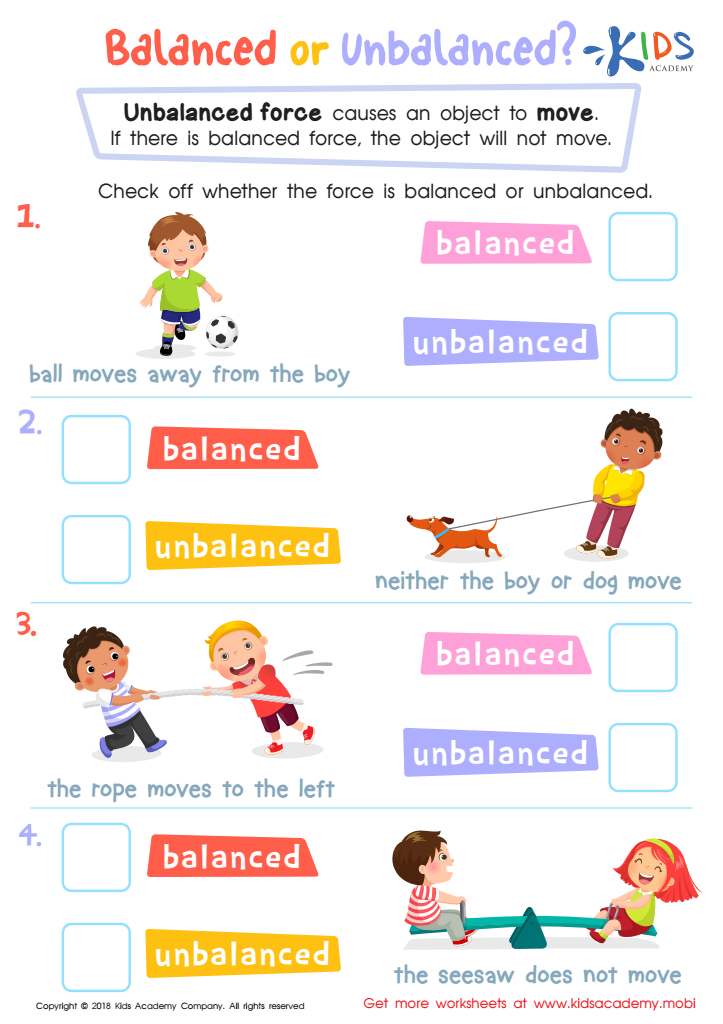Applying observational skills Worksheets for Kids
1 filtered results
-
From - To


Balanced or Unbalanced Science Worksheet
Question/Answer
How to train the Applying observational skill in Grade 3 students learning about Physical Science?
To train Grade 3 students in applying observational skills in Physical Science, incorporate hands-on experiments and encourage them to note differences and similarities. Use interactive activities like comparing objects' textures, weights, or observing water cycle processes. Prompt discussions on their observations to deepen understanding and critical thinking. Incorporating visual aids like charts or models can also enhance their learning experience.
What are some effective activities to train students’ Applying observational skill when teaching them about Physical Science?
For training students' observational skills in Physical Science, engage them in hands-on experiments that require precise observation, such as measuring chemical reactions, documenting physical changes in matter, or observing the principles of motion. Conduct field studies where they can observe natural phenomena, and use inquiry-based learning activities that prompt them to ask questions based on their observations.
What does the Applying observational skill mean when it comes to Grade 3 Physical Science learning?
In Grade 3 Physical Science, applying observational skills means teaching students to closely watch and note details about physical phenomena and experiments. They learn to recognize patterns, compare objects or changes, and make connections based on their observations. This foundational skill helps them understand scientific concepts better by engaging directly with the material world around them.
 Assign to the classroom
Assign to the classroom











